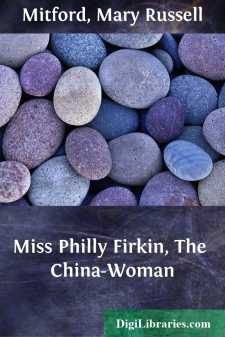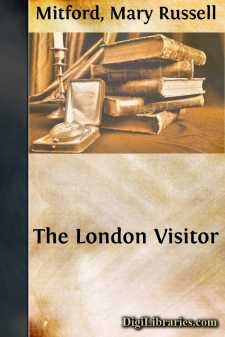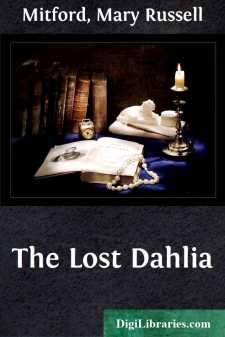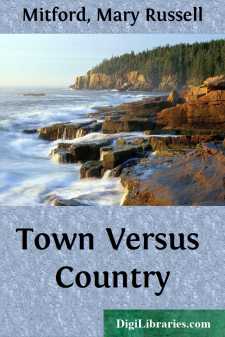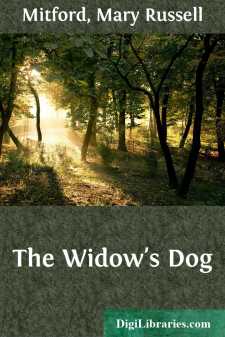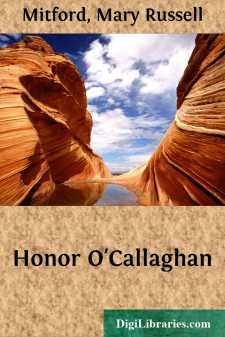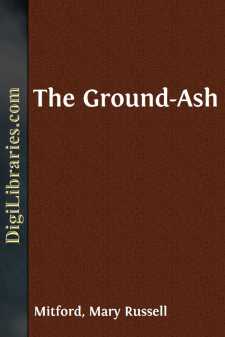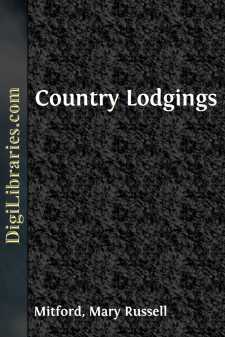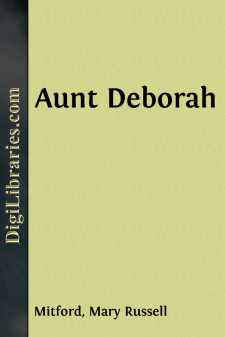Categories
- Antiques & Collectibles 13
- Architecture 36
- Art 48
- Bibles 22
- Biography & Autobiography 813
- Body, Mind & Spirit 142
- Business & Economics 28
- Children's Books 15
- Children's Fiction 12
- Computers 4
- Cooking 94
- Crafts & Hobbies 4
- Drama 346
- Education 46
- Family & Relationships 57
- Fiction 11828
- Games 19
- Gardening 17
- Health & Fitness 34
- History 1377
- House & Home 1
- Humor 147
- Juvenile Fiction 1873
- Juvenile Nonfiction 202
- Language Arts & Disciplines 88
- Law 16
- Literary Collections 686
- Literary Criticism 179
- Mathematics 13
- Medical 41
- Music 40
- Nature 179
- Non-Classifiable 1768
- Performing Arts 7
- Periodicals 1453
- Philosophy 64
- Photography 2
- Poetry 896
- Political Science 203
- Psychology 42
- Reference 154
- Religion 513
- Science 126
- Self-Help 84
- Social Science 81
- Sports & Recreation 34
- Study Aids 3
- Technology & Engineering 59
- Transportation 23
- Travel 463
- True Crime 29
Mary Russell Mitford
Mary Russell Mitford (1787–1855) was an English author and dramatist best known for her series of sketches titled "Our Village," which depicted rural life in an English village with charm and vivid detail. Her works were celebrated for their rich descriptions and engaging storytelling, making significant contributions to the literary tradition of local color. In addition to her prose, Mitford also wrote plays, although they were less successful than her prose works.
Author's Books:
Sort by:
These are good days for great heroes; so far at least as regards the general spread and universal diffusion of celebrity. In the matter of fame, indeed, that grand bill upon posterity which is to be found written in the page of history, and the changes of empires, Alexander may, for aught I know, be nearly on a par with the Duke of Wellington; but in point of local and temporary tributes to reputation,...
more...
In Belford Regis, as in many of those provincial capitals of the south of England, whose growth and importance have kept pace with the increased affluence and population of the neighbourhood, the principal shops will be found clustered in the close, inconvenient streets of the antique portion of the good town; whilst the more showy and commodious modern buildings are quite unable to compete in point of...
more...
Being in a state of utter mystification, (a very disagreeable state, by-the-bye,) I hold it advisable to lay my unhappy case, in strict confidence, in the lowest possible whisper, and quite in a corner, before my kind friend, patron, and protector, the public, through whose means—for now-a-days every body knows everything, and there is no riddle so dark but shall find an OEdipus to solve it—I may...
more...
If to have "had losses" be, as affirmed by Dogberry in one of Shakspeare's most charming plays, and corroborated by Sir Walter Scott in one of his most charming romances—(those two names do well in juxtaposition, the great Englishman! the great Scotsman!)—If to have "had losses" be a main proof of credit and respectability, then am I one of the most responsible persons in the...
more...
"I'm desperately afear'd, Sue, that that brother of thine will turn out a jackanapes," was the apostrophe of the good yeoman Michael Howe, to his pretty daughter Susan, as they were walking one fine afternoon in harvest through some narrow and richly wooded lanes, which wound between the crofts of his farm of Rutherford West, situate in that out-of-the-way part of Berkshire which is...
more...
One of the most beautiful spots in the north of Hampshire—a part of the country which, from its winding green lanes, with the trees meeting over head-like a cradle, its winding roads between coppices, with wide turfy margents on either side, as if left on purpose for the picturesque and frequent gipsy camp, its abundance of hedgerow timber, and its extensive tracts of woodland, seems as if the fields...
more...
Times are altered since Gray spoke of the young Etonians as a set of dirty boys playing at cricket. There are no such things as boys to be met with now, either at Eton or elsewhere; they are all men from ten years old upwards. Dirt also hath vanished bodily, to be replaced by finery. An aristocratic spirit, an aristocracy not of rank but of money, possesses the place, and an enlightened young gentleman...
more...
Amongst the many pleasant circumstances attendant on a love of flowers—that sort of love which leads us into the woods for the earliest primrose, or to the river side for the latest forget-me-not, and carries us to the parching heath or the watery mere to procure for the cultivated, or, if I may use the expression, the tame beauties of the parterre, the soil that they love; amongst the many...
more...
Between two and three years ago, the following pithy advertisement appeared in several of the London papers:— "Country Lodgings.—Apartments to let in a large farm-house,situate in a cheap and pleasant village, about forty milesfrom London. Apply (if by letter post-paid) to A. B., No. 7,Salisbury-street, Strand." Little did I think, whilst admiring in the broad page of the Morning Chronicle...
more...
A crosser old woman than Mrs. Deborah Thornby was certainly not to be found in the whole village of Hilton. Worth, in country phrase, a power of money, and living (to borrow another rustic expression) upon her means, the exercise of her extraordinary faculty for grumbling and scolding seemed the sole occupation of her existence, her only pursuit, solace, and amusement; and really it would have been a...
more...



